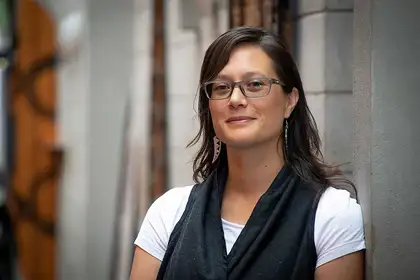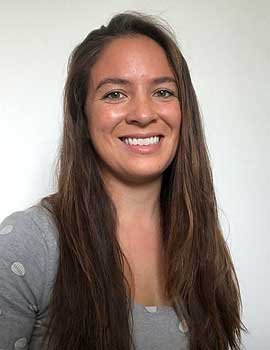

Massey University staff and students will be well represented at the 23rd World Conference on Health Promotion, to be held in Rotorua from Sunday.
The theme for this year’s conference is Waiora: Promoting Planetary Health and Sustainable Development for All. The conference, which is run by the International Union for Health Promotion and Education (IUHPE), is held every three years, around the world. This is the first time New Zealand has hosted the conference, which will involve up to 3000 delegates from New Zealand, Australia, the Pacific Islands, the wider Asia-Pacific region, Europe, Americas, Middle East and Africa. The conference will have a strong indigenous component around Māori and Pasifika and will be the biggest event ever held in Rotorua.
The College of Health has more than 20 staff and PhD students presenting, including College of Health Pro Vice-Chancellor Professor Jane Mills.
Dr Victoria Chinn will present her research, entitled Women unveiling their health potential: A way forward for empowering health promotion interventions.
“Health promotion adopts a positive, holistic, participatory and empowerment focused approach to health, yet many women’s health programmes set weight-loss as the primary goal for success, which has not only proven to be largely ineffectivebut also damaging to women’s health,” Dr Chinn says.
“This study introduces a health programme that aligns to the values of health promotion and with prospects to create sustainable change conducive to women’s health. The programme, Next Level Health, applies participatory methods for women to determine their own goals across six key health areas: physical activity, sleep, nutrition, eating behaviour, stress management and self-care, with the core aim of gaining more control over their health.”
Sixty women took part in the programme, which ran over a six-month period, and included a twelve-month follow up. Each month the participants met to reflect on the goals they had set, and to set new ones, with the aim to progress their self-defined goals by the end of the programme. Data was collected via a series of questionnaires at the beginning of the programme, at six months and at 12 months.
“Women progressed across an average of 29 levels, out of a possible 36, and significantly gained greater control over their health. The programme enabled women to create health routines in their everyday lives; broaden their health perspective to consider physical, mental and social dimensions as relevant to their health; improve their functional, interactional and critical health literacy; and more fully realise their potential for health in a process of self-actualisation,” Dr Chinn says.
“These findings suggest a holistic approach to health may be more effective for sustainable behaviour change focused on a balance of positive health behaviours rather than a weight-loss focused approach.”
Felicity Ware, Ngāpuhi, a lecturer from Massey’s Te Pūtahi a Toi: School of Māori Knowledge, will have an exhibit at the conference, and present on teaching whānau how to weave their own wahakura – woven harakeke basket for sleeping baby (pēpi).
“Wahakura are individual hand-made safe sleep spaces for pēpi woven out of harakeke, using the tradition of rāranga [weaving]. They were developed as a contemporary kaupapa Māori innovation to safe co-sleeping, particularly for Māori who have a disproportionately high rate of Sudden Unexpected Death in Infancy [SUDI]. Wahakura also promote bonding, responsive parenting, breastfeeding and smokefree environments,” she says.
“Wahakura embody the significant connection between the Pā Harakeke [plantation] as a model of whānau development and te whare tapu o te tangata [womb]. The atua Hineteiwaiwa, goddess of female arts, presides over both, strengthening the link between harakeke, weaving, wahakura, and raising tamariki [children]. Wahakura have their own mana [spiritual vitality] and mauri [physical vitality] inherited from Papatūānuku, Hineteiwaiwa and the whānau and weavers involved,” Ms Ware says.
“Teaching whānau how to make their own wahakura is empowering them to literally and symbolically create their own pathways to wellbeing. It contributes to the revitalisation of Māori culture, positive cultural identity, and mana motuhake/rangatiratanga [self-determination], especially important for Māori who have been displaced or marginalised.”
The waikawa weaving style was developed as the most simplest version in order to teach those new to weaving how to create their own, she says. “Wahakura take about two full days to make from harvest to finish for a new weaver. Once dried, quality assured and fitted with a breathable mattress, a cotton sheet and a natural fibre blanket, wahakura are safe to sleep babies from newborn until about four to six months, and can be re-used as long as they meet quality standards.”
Massey University staff and students presenting at the conference:
Dr Jeffery Adams - Challenges in providing health promotion to Asian gay and bisexual men in New Zealand (research presentation)
Dr Denise Blake - Drugs and Disasters: Access to opioid substitution treatment (research presentation)
Associate Professor Mary Breheny - Importance of early lives to inequalities in older age (research presentation)
Dr Teah Carlson - Indigenous Gaze: Transforming community through reclaiming health literacy practice, utilising methods of co-design, art-based creation and collaboration (research presentation)
Dr Penelope Carroll - Enabling participation of deaf and hearing, vision and mobility imparied young people in Aotearoa New Zealand (research presentation)
Dr Victoria Chinn - Women unveiling their health potential: A way forward for empowering health promotion interventions (research presentation)
Dr Beven Erueti -Wairuatanga: Integrating the fourth article of Te Tiriti o Waitangi into health promotion and health education (workshop)
Jeremy Hapeta - E Tū Toa Rangatahi - hei tū he Rangatira: Rugby for Positive Youth Development and (re)connecting with the environment (oral presentation)
Dr Geoff Kira - “Sometimes I just didn’t have the money”: Removing the barriers to consuming more fruit and vegetables. An exploratory study (research presentation), and Promoting Indigenous food sovereignty for enhancing food security, nutrition and health equity (symposium)
Professor Marlena Kruger - Dietary patterns associated with adiposity and bone mineral densityin older urban black South African women (research presentation)
Byron Perkins, Robyn Richardson, Dr Suzanne Phibbs, Associate Professor Christine Kenney, Professor Te Kani Kingi, Dr Simon Bennett - Te Rau Puawai a model for success: 20 years of building Māori capability and capacity in mental health related disciplines (teaching and learning forum)
Adjunct Dr Mat Walton - Implementing a health promotion initiative to achieve systems change: lessons from evaluation of Healthy Families NZ (research presentation) and Using Developmental Evaluation to inform systems change for health (oral presentation)
Professor Jane Mills – What can we do to address health challenges faced by communities? (sub-plenary session)
Christine Roseveare - Engaging public health students with equity: An innovative approach from an on-line New Zealand undergraduate course (oral presentation)
Sudesh Sharma and Associate Professor Rachel Page - Tobacco and alcohol use are playing critical role in the interaction of social determinants of non-communicable diseases in Nepal: a systems perspective (research presentation) and Health and social system challenges to tackle social determinants of non-communicable diseases in Nepal: a systems analysis (research presentation)
Dr Marta Rychert - Alcohol supply - an under-recognised contributor to less inclusive habitats and a legal response (research presentation)
Dr Christina Severinsen and Angelique Reweti - Wai ora: Connecting tangata (people), hauora (health), and taiao (environment) through participation in waka ama (film screening and research presentation)
Professor Christine Stephens - The importance of housing to health: A Capabilities Approach to unequal trajectories of healthy ageing (research presentation)
Dr Agnes Szabo - Alcohol use across the life course: Influences on health in old adulthood (research presentation)
Dr Agnes Szabo, Associate Professor Mary Breheny and Professor Christine Stephens - Environments for health equity in older age: Taking a life course perspective (symposium) and Advocating for health equity (moderated discussion)
Chris Vogliano - Can leveraging agrobiodiverse food systems help reverse the rise of malnutrition while providing climate change resilience in Pacific Small Island Developing States? (research presentation)
Felicity Ware - Wahakura (art) and Wahakura wānanga (weaving workshop - oral presentation)